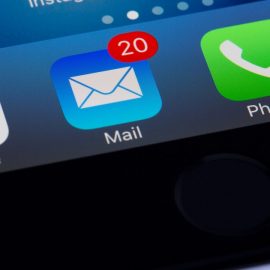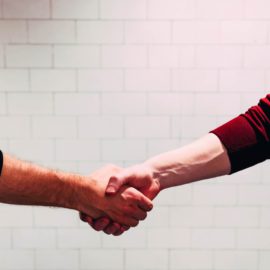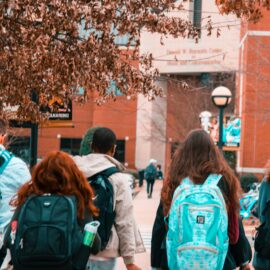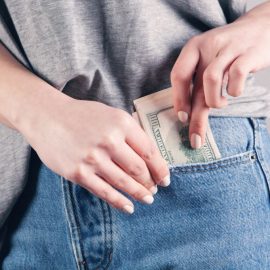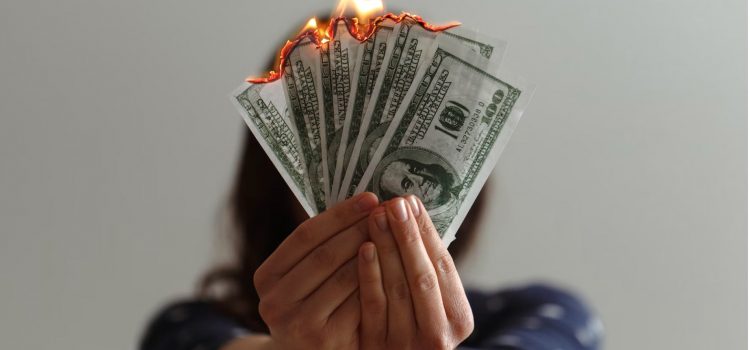
This is a free excerpt from one of Shortform’s Articles. We give you all the important information you need to know about current events and more.
Don't miss out on the whole story. Sign up for a free trial here .
What are the predictions for the next recession? How bad will the recession be? How can you prepare?
Concerns about recession in the U.S. economy are rising. The majority of economists predict that the economy will go into recession in the near future due to the combination of persistent inflation and rising interest rates.
Read on to learn the likelihood of the next recession, based on predictions from President Biden, analysts, and economists.
Predictions for the Next Recession
According to predictions for the next recession, most economists claim that the economy will go into recession in the near future due to the combination of persistent inflation and rising interest rates. However, some authorities, including President Biden, do not predict recession or think any recession will be minimal, because the labor market remains strong. To prepare for a possible recession, try to pay down any debt that you’re paying interest on. If you have money to invest, it may also be a good time to buy stocks while prices are low.
Perspective: Recession Unlikely
As for President Biden’s prediction, he thinks the next recession is unlikely and that, if it does happen, the recession will be mild and brief. In defense of his optimism, he cites legislation passed under his administration that is intended to lower healthcare costs, counteracting other increases in the cost of living, and allowing American consumers to sustain their demand for products and services.
Biden is not alone in predicting that recession is unlikely, despite slowed economic growth. A number of financial institutions, including Citigroup, Morgan Stanley, and Pantheon Macroeconomics, estimate that the likelihood of recession is significantly less than 50%. They base their assessment largely on the strong labor market: Unemployment is low, demand for labor is high, and wages are rising. This reflects a healthy and growing economy.
Furthermore, because of the tight labor market, even if the economy does begin to contract, employers will be hesitant to lay off workers because of the difficulty of replacing them later. This could provide a buffer against the rise of unemployment that usually accompanies recessions, minimizing the effect and duration of the recession, if it does occur.
Perspective: Recession Likely
However, many analysts are less optimistic. One survey of economists found that, on average, economists predict the probability of the next recession at 65%. Another survey estimated the probability of recession at 63%. Some sources argue that we’re already in a recession, based on the U.S. GDP, which decreased for two consecutive quarters in 2022, although they acknowledge that this is only one of several definitions for “recession.”
Meanwhile, one financial think-tank reports that their mathematical model for predicting recessions currently predicts a 96% probability of the next recession. Their model is based on financial statistics that they regard as leading indicators, such as the Federal Reserve’s balance sheet and the spread of interest rates between short-term and long-term bonds.
Other analysts are concerned that the Federal Reserve may be going too far with its efforts to curb inflation by raising interest rates. The Federal Reserve and other central banks throughout the world raised interest rates abruptly to levels that haven’t been seen since the early 2000s. This always results in some economic contraction—in fact, that is the point: To cool off hot markets and bring prices back down, you have to slow down economic growth somewhat.
But in this case, the contractions could be severe. Over the past decade, low interest rates have allowed companies to take out large loans. Some sources estimate corporate debt (or business assets purchased with loans that haven’t been repaid yet) accounts for as much as half of the total value of the U.S. economy. Rising interest rates could cause companies with large loans to fail, or force them to sell off assets and scale back operations to survive.
One analyst believes that the current combination of high inflation, large corporate debt, skyrocketing interest rates, and residual economic inhibitions from the COVID-19 pandemic is creating a perfect storm of financial problems that could result in a severe economic collapse if current trends continue.
How Do Recessions Happen?
Now that we’ve covered predictions for the next recession, we’ll discuss how recessions happen and what can be done to counter them.
In Naked Economics, bestselling author Charles Wheelan strips away the complexity from some of the most powerful theories in economics, allowing readers with little or no background in the subject to understand many of the field’s fundamental concepts. Here, Wheelan explains how recessions happen and what governments can do to counter recessions to help society normalize.
Recessions are periods of time during which an economy’s GDP shrinks. They’re generally caused by a shock to the system—something unexpected and bad happening. Shocks might be the bursting of stock market or real estate bubbles (when exorbitant price increases are followed by sudden and devastating losses), a steep rise in oil prices, or a combination of such causes.
Because all parts of modern markets are interconnected, the failure of one part of the economy can quickly cause other parts to fail as well. For example, if your income suddenly drops because of a stock market correction, you will respond by spending less money. Your decreased spending makes other people’s income decrease, who then respond by also spending less money, which spreads the pain throughout more and more sectors of the market.
When this kind of slowdown reaches banks, the entire economy can quickly freeze up. When banks stop lending money because they fear people caught in a downward economic cycle can’t pay it back, businesses can’t operate. This is what happened during the financial crisis that began in 2007. Homeowners took on more debt than they could finance in order to pay for new homes, fueling a property bubble. When property prices fell, people unable to honor their loans found they couldn’t sell their homes for enough money to cover their outstanding mortgages, and the resulting wave of foreclosures devastated investment banks. When Lehman Brothers, a major investment bank, declared bankruptcy, the global financial market froze as panicked banks stopped lending people money.
Countering Recessions
To counter recessions, governments can change their fiscal policies or their monetary policies to encourage businesses to begin investing and consumers to start spending, so that the economy becomes self-sustaining again.
Fiscal policies: A government can encourage spending by injecting money into the economy, either by cutting taxes or by creating stimulus programs that put money directly into the hands of consumers and businesses.
Monetary policies: A government controls the supply of money in an economy by increasing or decreasing short-term interest rates. Cutting interest rates allows consumers to buy more things and allows firms to invest. Raising interest rates puts a brake on the economy by raising the cost of money itself, making it harder for individuals and businesses to borrow capital.
A government can decrease interest rates to heat up an economy, but it must be careful that it doesn’t go too far and cause inflation—a continuous rise in prices. When interest rates are low, people borrow more money, and with more money running through an economy, prices for goods typically rise.
If, however, a government errs on the opposite end of the spectrum with interest rates that are too high, it can tip an economy into its next recession. When interest rates are high, borrowing money becomes expensive and people and firms stop taking out loans. Consequently, individuals stop spending money on big-ticket items, like homes, education, or home improvement projects, and businesses invest less and hire less, which decreases the number of jobs available.
TITLE: Naked Economics
AUTHOR: Charles J. Wheelan
TIME: 49
READS: 69
IMG_URL: https://www.shortform.com/blog/wp-content/uploads/2020/11/naked-economics-cover.png
BOOK_SUMMARYURL: naked-economics-summary-charles-j-wheelan
AMZN_ID: XYZ

Want to fast-track your learning? With Shortform, you’ll gain insights you won't find anywhere else .
Here's what you’ll get when you sign up for Shortform :
- Complicated ideas explained in simple and concise ways
- Smart analysis that connects what you’re reading to other key concepts
- Writing with zero fluff because we know how important your time is


